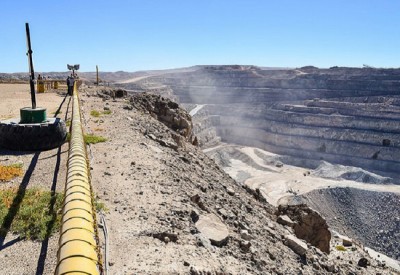UN General Assembly Recognises Health Risks from Depleted Uranium

The UN General Assembly has backed a new resolution on DU weapons by 151 votes to 4. The resolution, which highlights the ongoing concerns of affected states and communities, health experts and civil society over the potential health risks from DU exposure, is the sixth to be adopted since 2007. The text also recognises that countries affected by the use of DU weapons face considerable technical and financial barriers in dealing with DU contamination to internationally recognised radiation protection standards.
“While we welcome the fact that governments have finally acknowledged that those affected by the use of DU weapons have serious concerns over the risks they pose, we have seen little to suggest that states are willing to act,” said ICBUW Coordinator Doug Weir. “Resolutions alone will not clear land or assist communities, and it is high time that governments commit to delivering clear obligations that tackle the post-conflict legacy of DU weapons.”
Although an overwhelming majority of states vote in favour of the resolutions, a minority still abstain. Around half are EU members, all of whom have been urged to vote in favour by the European Parliament. Germany, which supported the resolutions until 2014, has been singled out for particular criticism over its efforts to weaken the resolution’s language and encourage others to abstain. Meanwhile, hopes were high this year that Canada would vote in favour for the first time. In opposition Justin Trudeau’s Liberal Party had been publicly opposed to DU weapons but this policy appears to have been quietly dropped in government.
As usual, the resolution was opposed only by the US, UK, France and Israel. Unusually, Montenegro, which voted in favour in the first round of voting in November abstained in the later plenary vote. Similarly South Sudan, which didn’t vote in November voted in the second round, abstaining for the first time. ICBUW will check to confirm that both Sudan and Montenegro’s votes were intentional.
The first round of voting on the resolution came just days after the US confirmed that it had used DU in Syria, sparking parliamentary interest in several of the countries that are part of the Operation Inherent Resolve military coalition, including Belgium, the Netherlands, New Zealand and the UK. Russia appeared to delight in the propaganda value of the disclosure, although as it has its own stocks of DU weapons, once again abstained on the resolution.
UN’s Sixth Committee debates principle on toxic remnants of war
In a move that could have ramifications for the development of post-conflict obligations for DU clearance, the toxic and hazardous remnants of war were also on agenda of the UN General Assembly’s Sixth Committee. While the DU resolution was being dealt with by the General Assembly’s First Committee, its Sixth Committee, which considers legal matters, was debating the legal principles that should govern the protection of the environment after armed conflicts.
A draft principle on the management of toxic remnants of war that was proposed by the International Law Commission was backed by a number of states, although the US, Israel and the Netherlands registered objections to any attempt to expand the definition of remnants of war beyond explosive remnants of war. Two other principles, on post-conflict remedial measures and on information sharing were also on the agenda, both of which could help inform DU clearance practice in future.

